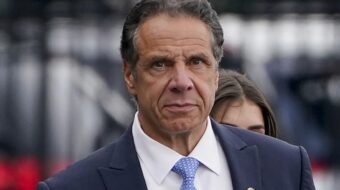WASHINGTON, D.C. — The League of United Latin American Citizens, LULAC, which was founded in 1929 and has more than 100,000 members, met here July 7-12 for its 79th National Convention. Topics ranged from Latinos in the military to education reform to Election Day mobilization, and speakers ranged across the politico-ideological spectrum. Many of the speakers addressed the topic of immigration, including both major party presidential candidates.
Senator Barack Obama spoke pointedly on immigration: “I marched with you in the streets of Chicago to meet our immigration challenge. I fought with you in the Senate for comprehensive immigration reform. And I will make it a top priority in my first year as President”. The phrase “comprehensive immigration reform” is understood to include the legalization of most of the 12 million undocumented immigrants in the country.
Obama also pointed out that Latinos are also disproportionately impacted by Republican economic policies and their results, such as the mortgage loan crisis and the crisis in health care coverage and public education, and promised strong government action to deal with these issues. When he stopped, he received a standing ovation.
In contrast, McCain’s speech to LULAC was a puzzle. On topics other than immigration, he gave the standard Republican line, emphasizing tax cuts, privatization and other business-friendly polices. Having previously been criticized by Obama and others for backing away from comprehensive immigration reform legislation that he himself had co-sponsored, he danced around the issue. He did not say he would support legalization; nor did he say he would not perhaps support it at some time in the future. Rather he told the audience a story about how, when he was held captive in Hanoi, he had a chance to be released early but refused the offer because it would have meant leaving behind a Latino soldier who had been captured before him. The point seems to have been “don’t worry, I won’t leave my Latino friends in the lurch”, which probably did not impress Latino folks who feel that they are not just left in the lurch, but actually under siege by Republican policies.
In a Friday panel discussion on immigration, Marcelo Farah, fifth general investigator of the National Commission on Human Rights of Mexico, pointed out the negative effects of the U.S. attempts on cracking down on Mexican immigration since NAFTA came into force in 1994. Not only has undocumented immigration continued to increase, but, whereas it used to cost $300 to have oneself smuggled across the border, it now costs $1,500 to $3,000 for Mexicans, and up to $12,000 for other nationalities passing through Mexico, as violent gangs have taken over an immigrant smuggling business that used to be a small-scale cottage industry. Saying that large-scale labor migration from Mexico to the US is likely to continue for the foreseeable future, Farah said “it’s time to stop demonizing and repressing migrants” and for the United States and Mexico to work together on a solution. Farah also criticized the abuse faced by Central American immigrants at the hands of Mexican authorities as they pass through Mexico toward the United States.
Frank Sharry, former executive director of the National Immigration forum and now head of America’s Voice, tore into the administration as he analyzed why efforts to pass humane and practical immigration reform legislation have failed in the last two years. “Last year we thought we were in a policy debate but we were [really] in a new front of the culture war” facing “a force that is literally trying to demonize Latinos.” Sharry pointed out that the rhetoric about “illegal” immigrants masks a racist attack on Latinos as a whole. For its part, the Bush administration, by terrorizing the Latino community with stepped-up immigration enforcement, hopes to “create a sense of fear so that people leave,” a policy, which Sharry characterized as “a 14th century response to 21st century labor migration.” Yet public opinion surveys show that the extreme anti-immigrant forces do not represent more than a minority of about 33 percent, even in the Republican Party.
What happened was that the anti-immigrant forces were much better organized for lobbying and political pressure than were the pro-immigrant forces.
All speakers agreed that massive registration of voters and turnout in the November election is vitally important to stopping the anti-immigrant campaign and returning to the theme of legalization of the undocumented.









